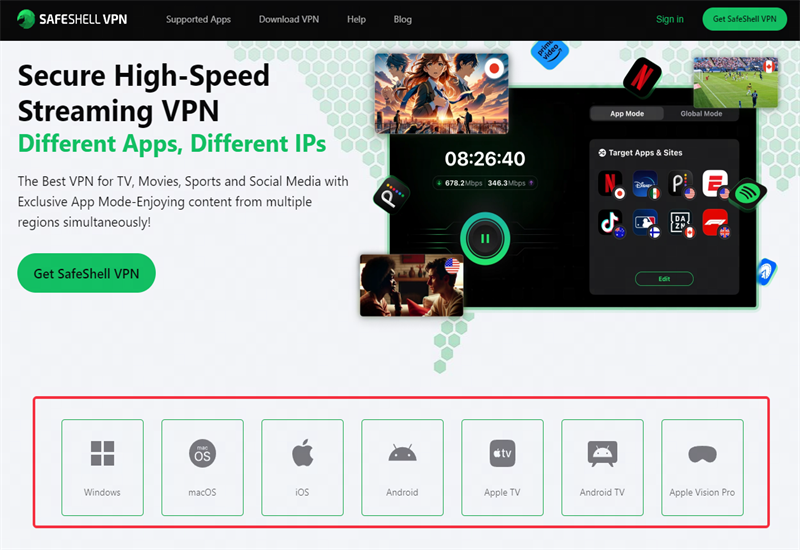Is Nord VPN Safe? My Honest Take
I still remember that fateful day in my college dorm when my roommate's laptop got hacked while using public Wi-Fi at our favorite coffee shop. All her personal information, including banking details, was compromised. That was my wake-up call about online security, and I've been researching VPNs ever since. When friends ask me, "Is Nord VPN safe?" I don't give a simple yes or no – the answer requires some nuance.
The Safety Landscape of NordVPN
NordVPN has built quite a reputation in the VPN world, and for good reason. Based in Panama (a privacy-friendly jurisdiction outside the Fourteen Eyes intelligence alliance), NordVPN operates under a strict no-logs policy that has been independently audited five times as of 2025. This means they don't track or store your online activities – a crucial feature for anyone serious about privacy.
Their security credentials are impressive:
- AES-256 or ChaCha20 encryption (military-grade protection)
- Perfect Forward Secrecy (generates new encryption keys for each session)
- Post-quantum encryption upgrades (added to all major platforms in early 2025)
- DNS, IP, and WebRTC leak protection
As someone who regularly tests VPN services, I've found NordVPN to consistently rank among the most secure options available. Their Threat Protection Pro feature blocks between 70-100% of ads and malware, adding an extra layer of security beyond just hiding your IP address.
The Counterargument: No VPN Is Perfect
Despite these robust security features, some critics argue that no commercial VPN service can deliver complete privacy. As The New York Times has suggested, users should reconsider whether any VPN service is worth their money. The primary concerns include:
- Trust Transfer : You're simply shifting trust from your ISP to the VPN provider
- Limited Protection : VPNs don't protect against browser fingerprinting or tracking cookies
- Potential Logging : Despite claims, some VPN providers have been caught logging user data
These are valid concerns that apply to the entire VPN industry, not just NordVPN. There's a common misconception that using a VPN makes you completely anonymous online – it doesn't. Your device can still be fingerprinted, and websites can track you through cookies regardless of your IP address.
My Personal Experience with NordVPN vs. SafeShell VPN
After using NordVPN for two years, I decided to try SafeShell VPN last month when my subscription was up for renewal. The difference in performance was eye-opening.

While NordVPN maintains a respectable 90% speed retention rate, SafeShell VPN's lightning-fast servers consistently delivered near-100% of my base connection speed. This made a huge difference when streaming 4K content – no more frustrating buffering during crucial moments of my favorite shows!
Speed Comparison: SafeShell vs. NordVPN
| Feature | SafeShell VPN | NordVPN |
|---|---|---|
| Speed retention | 95-99% | ~90% |
| Streaming optimization | Specifically engineered for streaming | Good but not specialized |
| Server network | Smaller but highly optimized | 7,400+ in 118 countries |
| Simultaneous connections | 5 devices | 10 devices |
| Unique features | App Mode for multi-region access | Double VPN, Onion over VPN |
SafeShell's exclusive App Mode is a game-changer for streaming enthusiasts like me. It allows me to access content from multiple regions simultaneously – I can watch US Netflix while my partner streams BBC iPlayer content, all without disconnecting and reconnecting to different servers.
Security Comparison: Playing It Safe
When it comes to security fundamentals, both services check the essential boxes:
✅ Strong encryption protocols
✅ No-logs policies
✅ Kill switch protection
✅ DNS leak prevention
However, NordVPN's additional security features like Double VPN and Onion over VPN provide extra layers of protection that might appeal to users with heightened privacy concerns. That said, SafeShell's proprietary "ShellGuard" protocol has impressed me with its ability to maintain security without sacrificing speed – something that's often a trade-off with more complex security setups.
The Bottom Line: Is NordVPN Safe?
To put it bluntly, yes – NordVPN is generally safe for most users' needs. Its robust encryption, no-logs policy, and privacy-friendly jurisdiction make it a solid choice for protecting your online activities. However, like any security tool, it's not a silver bullet.
For streaming enthusiasts who prioritize speed and unblocking capabilities, SafeShell VPN offers a compelling alternative with its specialized streaming optimization and innovative App Mode. I've found it particularly effective at maintaining high speeds while accessing geo-restricted content – crucial for binge-watching in high definition without interruptions.
Making Your Choice
Choosing between NordVPN and alternatives like SafeShell VPN ultimately comes down to your specific needs:
- If you're primarily concerned with maximum security features, NordVPN's additional protections might give you more peace of mind
- If streaming performance and ease of use are your priorities, SafeShell's specialized infrastructure offers noticeable advantages
- If budget is a concern, compare the latest pricing (both providers frequently offer discounts)
Remember that the VPN landscape is constantly evolving, with providers regularly updating their features and security measures. What was true yesterday might not be true tomorrow, which is why I always recommend taking advantage of money-back guarantees to test services firsthand.
Note: This article reflects my personal experience with both services as of March 2025. Your mileage may vary depending on your location, internet provider, and specific use cases.



